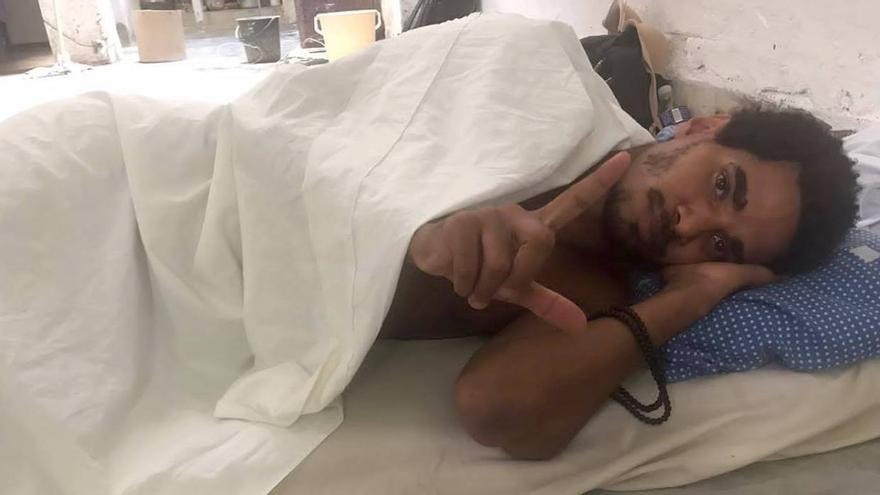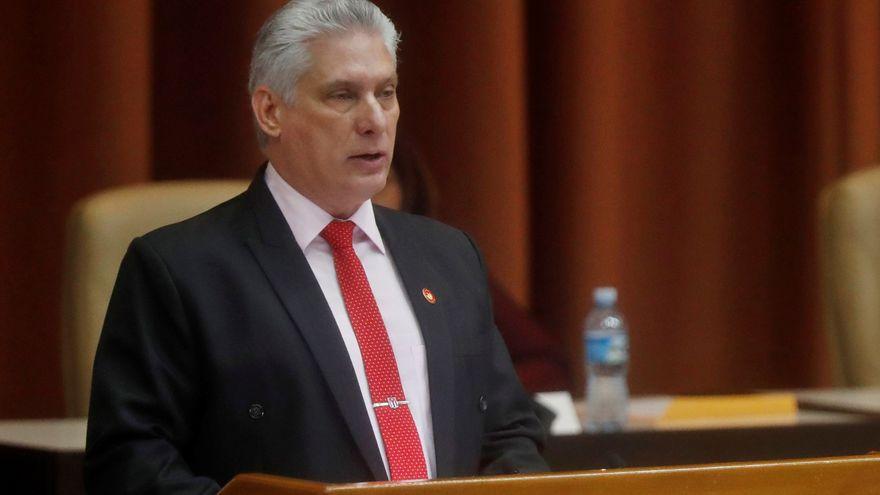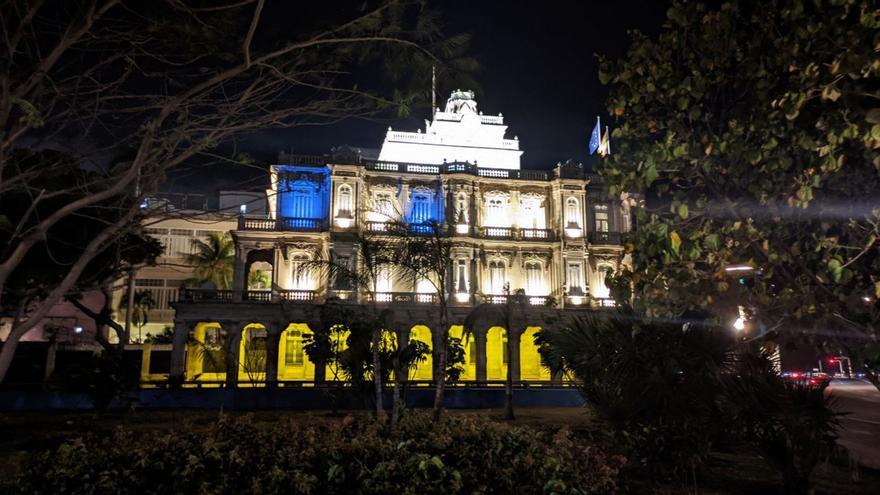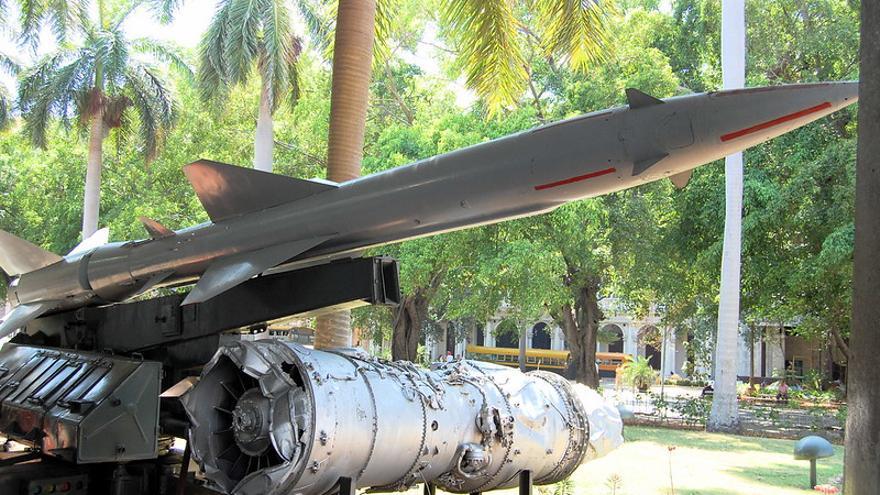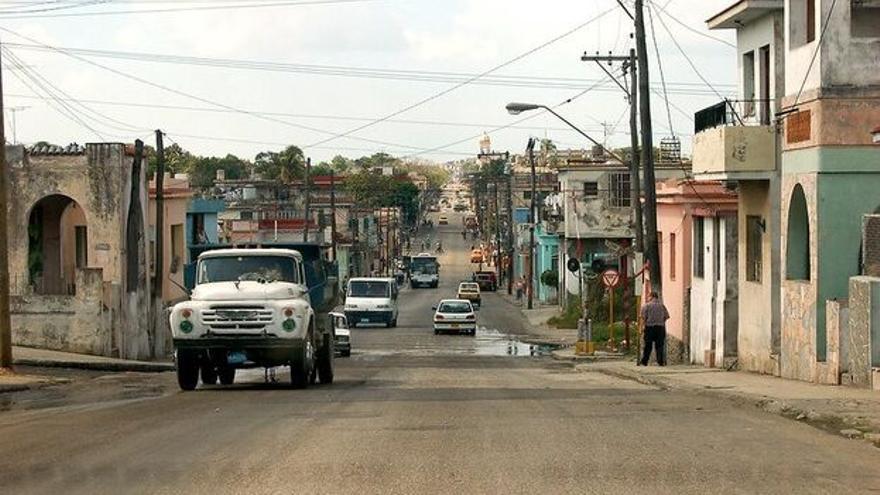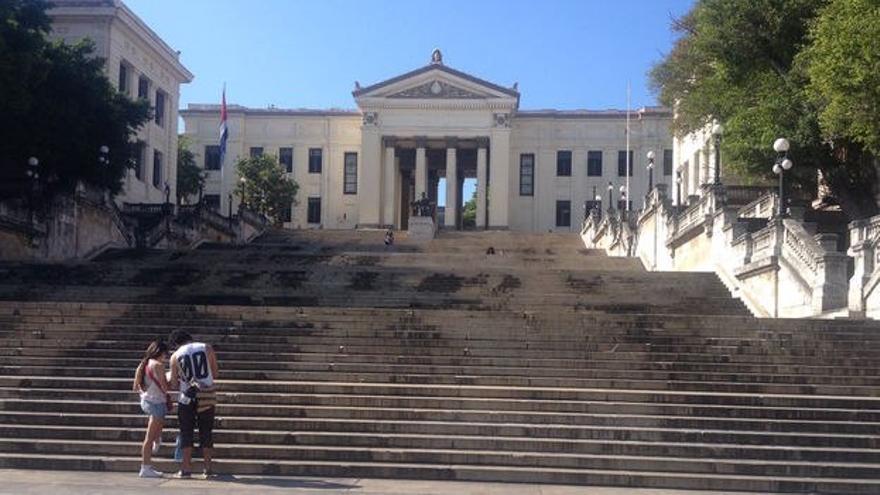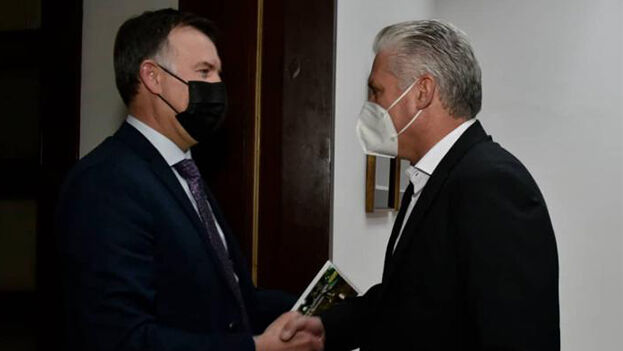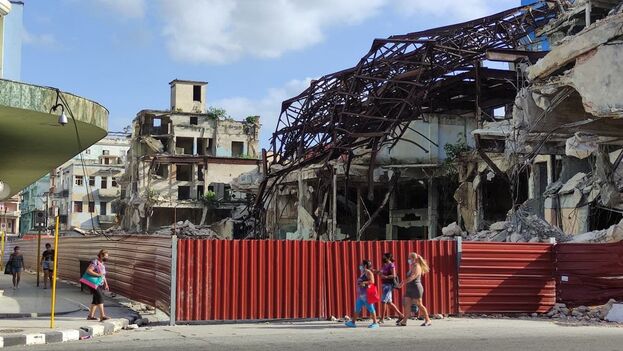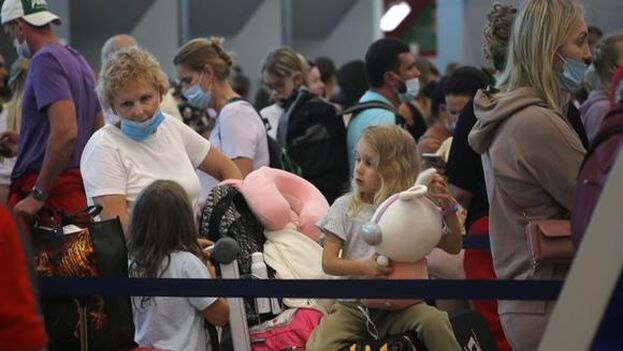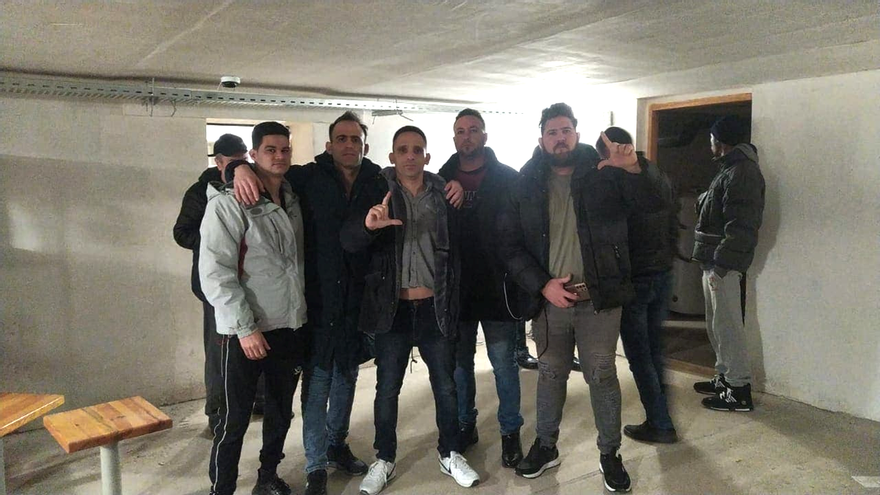He dropped out of university to become a priest when he was already enrolled in his fourth year of medical school. His transition was filled with angst, as he recounts in his book Hágase mi voluntad [My Will Be Done]. He was ordained in 1996 at the same site where, as a baby, he was baptized.
When motivated by faith a priest raises his voice against injustice and in favor of values, when he defends people’s human dignity, problems arise. If faith in Cuba is circumscribed to less controversial topics, for example, charity, service of others, or along those lines, the Government would remain in the lead, then there would be no problem. Nonetheless, when someone practices charity in an area where the Government cannot or does not want to participate, then there are problems. We only need to remember how the authorities reacted when people, on their own, mobilized support for those affected by a tornado in Havana.
There is a passage in the Gospel which reminds me of the attitude of the Communist Party. Some disciples tell Jesus that upon seeing some people expelling demons in his name, they forbade it, “because they were not one of us.” Jesus responded, “Well, you did wrong.” continue reading
If the Church were neutral in all matters, there would be no problem, but then it would be renouncing its own identity and that is non-negotiable.
Escobar. One of the most difficult situations today in Cuba is that of hundreds of people who have been sentenced to years in jail for demonstrating peacefully on July 11th. What has been your position with respect to that?
Reyes. What they did was exercise their right to protest. The sentences, aside from being notoriously excessive, had the intention of intimidating the nonconformists. It is clearly an injustice.
This must be reversed, especially taking into consideration that among those convicted are some very young people, for whom jail time may ruin their lives forever, hijack their youth, and destroy their humanity.
It would be a very magnanimous gesture on the part of the Government to simply say, “this will be reversed.” It will be reviewed because it is wrong.
Escobar. And what can the Church do to promote this review?
Reyes. The first thing the Church has done is what it always does: accompany. It has contacted the prisoners’ families, it has listened and helped to the extent possible. I think that by its prophetic nature, which means speaking in the name of God, the Church’s role is to denounce because for God this should be wrong and what is wrong must be denounced. We may or may not be heard, but it must be said. Silence is not the attitude.
The Church has been willing to accompany the families in legal proceedings, but many are afraid to speak, to protest, to stand up, because they have been terrorized with the well-known phrase, “if you speak it will be worse.” The family knows their children, their relatives are at the mercy of the authorities who enjoy total impunity. They can do anything and nothing will happen. That fear of “what if something happens to them,” encloses them in a circle of silence and that is how the impunity of the authorities grows.
There are very courageous women who have decided to dress in black as a sign of protest. As did the mothers and wives of prisoners during the dictatorship of Fulgencio Batista. History repeats itself.
Escobar. A single priest in the town of Esmeralda can do a lot, but is there any initiative to convene more clergymen in this denunciation, in this protest?
Reyes. Whenever I think that the ideal thing would be for as many people as possible to join me, I recall the fable of the hummingbird who, faced with a fire in the forest, while all the animals fled in fear, the small bird went to the river and sucked up all the water it could to throw it on the flames. I invite, I encourage others, but without failing to do my duty. I am not alone in that purpose, but I hope more people will join.
Escobar. As a priest, what advice do you give those young people who debate that dilemma of continuing to live here with little hope for a future or leaving the Island at any cost?
Reyes. That is a very complicated topic. It hurts me very much that people see the need to emigrate, especially young people who can’t find, in their land, the tangible possibility of a future. My first impulse is to tell them, “stay and fight,” but I understand that we only have one life to live and people want to self-actualize; all of a sudden years pass and they don’t achieve anything.
I knew a young man who graduated with a degree in architecture. Everyone made glowing comments about his professional ability, but one day I found out he was at his grandfather’s farm operating machinery to clean rice. When I asked him why he did that he responded that, there, he earned in a day what, as an architect, he earned in one month. I remember I told him that Cuba would change and he only asked me, “When?” That occurred more than 20 years ago.
No one wants their children to go through the same thing. Since I can’t guarantee anyone here a future for their children, I lose all arguments asking them to stay. I can’t even provide an example of “the failure” of those who have left.
Escobar. In some religious circles, obeying the State is promoted as a norm. How can that be fulfilled under a dictatorship?
Reyes. Peter, the apostle, clearly said that God must be obeyed before men. For his part, Paul said, “pray and obey the authorities,” but the Church promotes obeying authorities when the laws defend values. It doesn’t matter to which political spectrum a citizen belongs, he should stop when the traffic signal demands it; that law defends a value, defends life. When a law goes against a value, obedience is not required. An example is the Family Code, which in my judgment, goes above basic family values, for that reason, there is no obligation to obey it, but rather there is an obligation to oppose it. That is the Church’s social doctrine.
Escobar. What, in your judgment, are the main points in which the Code contradicts human values?
Reyes. It is an extensive topic, so I will only center on the fact that not recognizing a family’s right to educate their own children according to their own criteria and principles. If a child in a family is being abused, clearly there should be a way to protect him or her, and it is that way in almost the whole world, but the family has the right to educate their own children in the way they consider best. The child must be respected, but parents may impose that he or she must eat or inject a medication. Sometimes I jokingly say that if one day a child enthusiastically asks his parents to take him to the dentist, perhaps it would be best if they take him to the psychiatrist. The idea that the family cannot signal to the child what to the State seems incorrect is somewhat of a catastrophe.
Escobar. How does a priest react when he is faced, in the flesh, with officials who put the Government policies into practice?
Reyes. I cannot forget that they are my brothers and that one thing is what I think is wrong and another is their person, their life. For me, principles are also non-negotiable. I try to communicate with them, pray for them. I must extend a hand again and again; if they bite it or they spit on it, that is their problem. They can count on me in their time of need, whether they need medicine or my blood, I will offer it without fanfare.
Escobar. Among those that are dissatisfied with the Government are some who believe that they can advise, “from within the Revolution,” to improve its management; others propose a confrontation without a truce and there is no shortage of those who insist on proposing a dialogue among all parties. Where do you stand?
Reyes. My tendency is toward dialogue, but what do I mean by dialogue? This is a totalitarian system with centralized power which has hijacked the freedom of the [Cuban] people. Dialogue is so that this situation will change with the goal of having a democratic, pluralistic country where the communist government isn’t the only option, and to make a reality for Cuba that wonderful phrase, “with everyone, for the good of everyone.”
A dialogue will make sense if it is to accomplish that, but before that, the government must demonstrate it has the authentic will to make that happen. I am a witness to their lack of will, every time I’ve asked to meet with them, the reply has always been that they will not meet me.
I reject violence and confrontation, but my great fear is that it is the only path left to change things; that the time will come when we will have not just another July 11th, but that this time it be brutal.
The government’s error is insisting on “no one will get me out.” However, that is forgetting that the people get tired. The ideal thing would be that from their seat of power they take the initiative to democratize the country and do it peacefully. Without the government’s willingness to dialogue, Cuba will continue to be an island on the run, it will continue to be a powder keg without knowing when it will explode. They should realize that they will also be better off when this change occurs.
Escobar. And what, of all this, do we leave to God?
Reyes. It is often repeated that the solution for Cuba lies in political and economic change, but it is not possible without spiritual change. Many biblical texts state that God, through the prophets, criticizes the people for abandoning Him and have gone after the baals, the false idols. I think the Cuban people abandoned Yahweh, God the Father, many years ago and without Him, following their idols, tried to build a society that claimed to be prosperous and marvelous.
In the 5th century San Augustine said, “when one flees from God, everything flees from you.” If God is not in the new Cuba, another dictatorship awaits, with the social injustice and all the ills created by that ill-fated revolution. These people need God, which does not mean that everyone must go to mass on Sunday (though that would be magnificent.) But it is absolutely necessary for the [Cuban] people to open their hearts to God.
Translated by: Silvia Suárez
____________
COLLABORATE WITH OUR WORK: The 14ymedio team is committed to practicing serious journalism that reflects Cuba’s reality in all its depth. Thank you for joining us on this long journey. We invite you to continue supporting us by becoming a member of 14ymedio now. Together we can continue transforming journalism in Cuba.
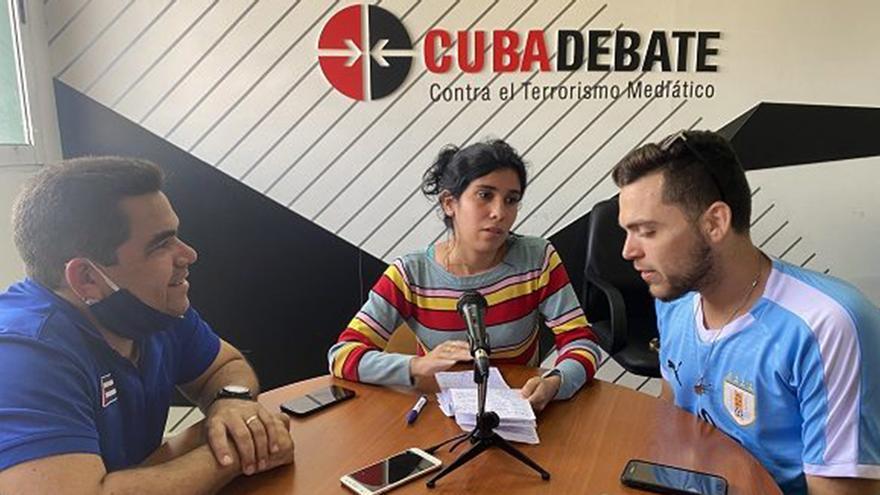
![]() 14ymedio, Havana, 9 March 2022 — “I would love to work for you. I have always loved science fiction.” This one by Osvaldo Figueruelo was one of the multiple reactions to a job announcement launched by Cubadebate this Tuesday to cover ten positions in the official media.
14ymedio, Havana, 9 March 2022 — “I would love to work for you. I have always loved science fiction.” This one by Osvaldo Figueruelo was one of the multiple reactions to a job announcement launched by Cubadebate this Tuesday to cover ten positions in the official media.
